
With the theme "Unified Market - Towards Common Prosperity", this is the largest business forum on the sidelines of the 47th ASEAN Summit and also one of the largest business forums in Asia this year.
Held on October 25-26, ABIS 2025 is organized by the ASEAN Business Advisory Council (ASEAN-BAC), bringing together more than 1,500 delegates, including ASEAN heads of state and senior leaders, CEOs of leading corporations and international economic experts. The conference focuses on innovative measures by the private sector to promote policy reforms and enhance ASEAN's role in the global economy.
Over the years, the Prime Minister has always attended and spoken at ABIS conferences, affirming his deep interest and commitment to accompanying the ASEAN business community.
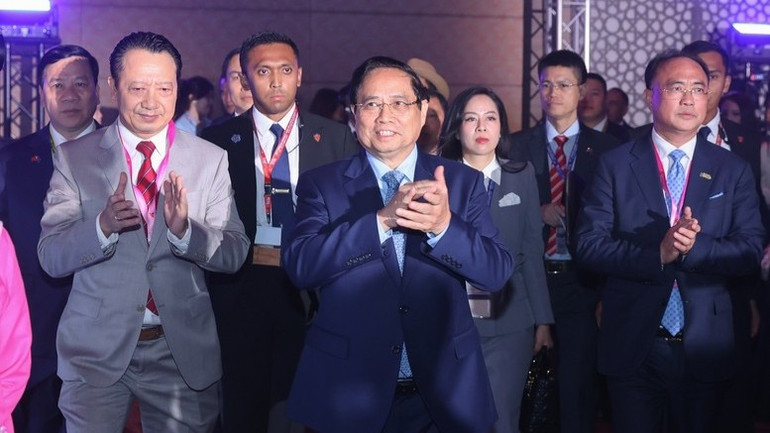
The discussion agenda at ABIS 2025 by Prime Minister Pham Minh Chinh focused on several key issues: Vietnam's economic policies and priorities, as well as the Government's strategies to maintain growth amid global uncertainties; innovation and digitalization, how Vietnam leverages technology to enhance competitiveness and prepare its workforce for the digital economy; Vietnam's role as a leading manufacturing hub and its efforts to move up the value chain, including research and development (R&D), advanced design and manufacturing; regional supply chain resilience, how Vietnam and ASEAN can maintain their role as open and trustworthy partners to the global business community; Vietnam's contributions to regional and global cooperation, including promoting ASEAN's economic agenda.
Programme coordinator, Ms. Rachel Eng, Managing Director of Eng and Co. LLC and ASEAN BAC member in Singapore, said that in recent years, Vietnam has emerged as one of Asia’s most dynamic growth engines. Despite a volatile global context, geopolitical tensions, supply chain disruptions, and a slowdown in global demand, Vietnam has maintained impressive growth, underpinned by sound economic policies, open trade, and a strong reform agenda. Equally impressive is Vietnam’s balanced approach to development, promoting industrialization and digitalization.
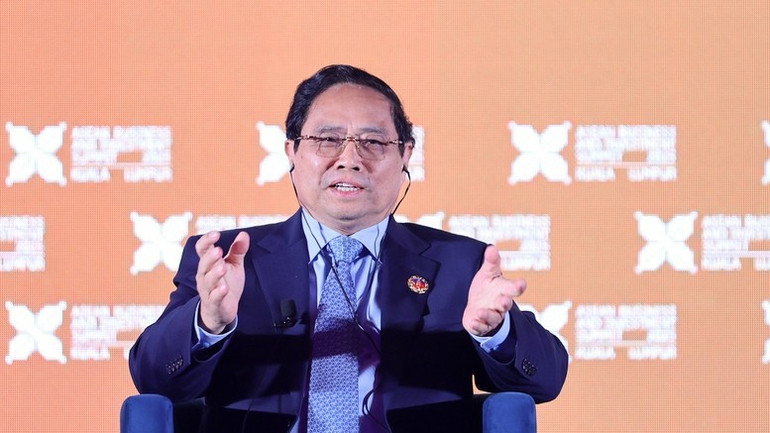
Answering the first question about Vietnam's key economic priorities in the future, and how to balance growth with sustainable development, autonomy and integration, Prime Minister Pham Minh Chinh said that in recent years, despite many difficulties and challenges, the world economy has slowed down, multilateralism has faced many challenges, and the supply chain has been broken, Vietnam has maintained economic growth, while stabilizing the macro economy, controlling inflation, ensuring major balances of the economy (enough revenue to cover expenditure, enough exports to cover imports, enough food to eat, enough energy for production, business, and consumption, the labor market can meet the transition, public debt, government debt, and foreign debt are controlled, and the budget deficit is within the limits allowed by the National Assembly).
In the coming time, the Prime Minister stated that a very important orientation for Vietnam is to continue promoting growth drivers, including renewing traditional drivers including investment, export and consumption and promoting new growth drivers.
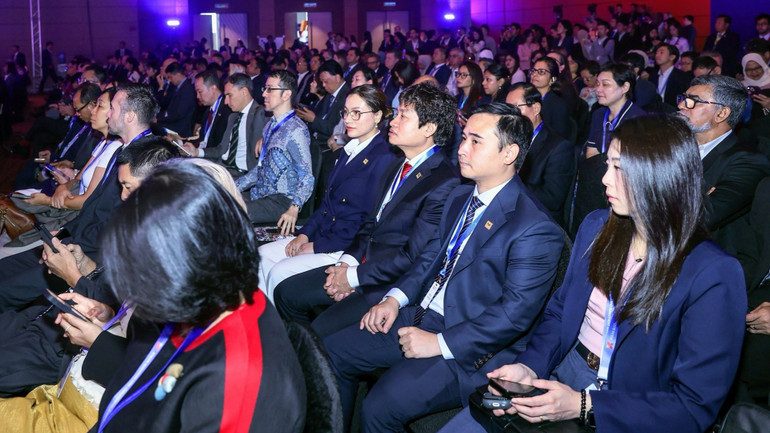
Accordingly, public investment leads private investment, with the spirit of "A creative state, pioneering enterprises, public and private cooperation, a rich and strong country, happy people". At the same time, promote exports, diversify markets, diversify products and diversify supply chains; promote domestic consumption with a population of more than 100 million people and effectively exploit 17 signed free trade agreements. Along with that, Vietnam promotes new growth drivers such as green economy, digital economy, circular economic growth, sharing economy, creative economy...
The Prime Minister stated that Vietnam determines that growth must be fast but sustainable and inclusive, that is the consistent ideology; balancing between promoting self-reliance and self-strengthening and deep, substantive and effective international integration.
In the second question, assessing that Vietnam has a young population, a rapidly growing digital economy, very dynamic startups and growing e-commerce, the coordinator asked the Prime Minister to tell how innovation and digitalization are shaping Vietnam's next development agenda and what are Vietnam's priority areas in digital transformation.
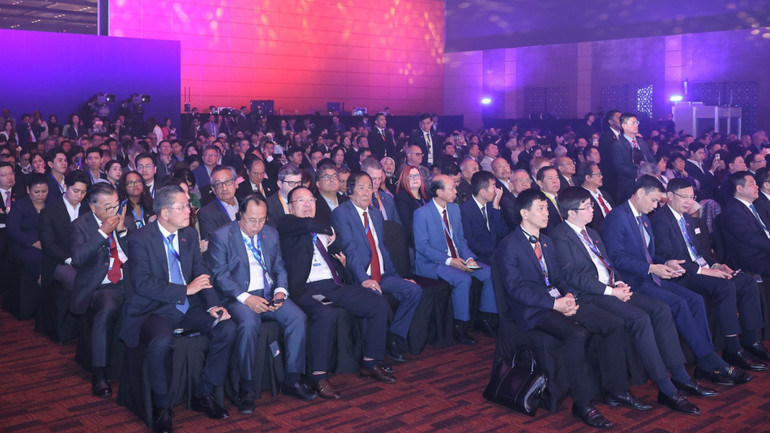
Regarding this content, the Prime Minister said that Vietnam identifies digital transformation as an objective requirement, a strategic choice, a top priority, both in thinking and in action. Digital transformation plays a very important role in society as well as in economic development, especially in economic connection between countries, connecting people, connecting businesses, connecting regions and cultures.
In digital transformation, Vietnam prioritizes the development of artificial intelligence, semiconductor chips; e-commerce, logistics; digital transformation of services in healthcare, education, culture, human exchange, and tourism.
According to the Prime Minister, digital transformation must create a movement, a trend, and to build a digital government, develop a digital society and a digital economy, there must be digital human resources and digital citizens. Therefore, Vietnam has launched and resolutely implemented the "Digital Education for All" movement under the direction of General Secretary To Lam, whereby all citizens can learn, participate in the digital transformation process and enjoy the results of this process.
In the third question, the coordinator asked whether ASEAN economies, including Vietnam, can play a greater role in building resilience while keeping markets open; what steps is Vietnam taking to enhance supply chain resilience, and how ASEAN can remain a trusted partner to the global business community.
Sharing with delegates, Prime Minister Pham Minh Chinh said that life always has difficulties, and so does the economy of countries in the current context. With the viewpoint that "resources originate from thinking, motivation originates from innovation, strength originates from the people", leaders facing the storms of the economy must be extremely calm, persistent, steadfast in major principles but extremely flexible in solutions; perceive and evaluate the situation and the world in an objective, comprehensive, inclusive way, not pessimistic, confused, wavering when facing difficulties and challenges, and not too optimistic when there are opportunities and advantages.
The Prime Minister said that what the world admires about ASEAN is the principle of solidarity, unity in diversity, the spirit of self-reliance, the role of the growth focal point, the goal of inclusive development, placing people at the center, the subject, the resource, and the driving force of development; therefore, it is necessary to continue promoting ASEAN's central role, placing ASEAN's role in the world as a whole, and then based on ASEAN's specific conditions to determine guidelines, visions, actions and coordination between economies in a way that is appropriate to the actual situation.
The head of the Vietnamese government gave an example: when the global supply chain is broken, ASEAN countries must strengthen the connection of the intra-bloc supply chain. Or when the policies of foreign countries cause impacts and influences, ASEAN countries must improve their self-reliance, support, and increase the opening of their economies to compensate for the impacts and damages.
The Prime Minister suggested that ASEAN countries increase exchanges, build, harmonize and improve the quality of institutions, turning institutions into competitiveness; at the same time, connect comprehensive infrastructure including hard infrastructure, soft infrastructure, cultural infrastructure, social infrastructure, transportation, digital transformation, etc.
Along with that, promoting high-quality human resource training to adapt to the new situation, with the transformation, promoting resources from ASEAN's large population and young population, this is a competitive advantage that ASEAN needs to promote to the fullest. Mutual support for smart governance, including national governance, corporate governance; building good institutions to call for and attract foreign investment, harmoniously and effectively combining internal and external resources, in which internal resources (people, nature, cultural-historical traditions) are fundamental, strategic, long-term, decisive, external resources are important, breakthroughs in capital, investment, technology, governance, institutions...
According to the Prime Minister, these are very important orientations and pillars on the foundation of ASEAN's solidarity and unity in diversity, but implementation must be very flexible to connect economies and develop self-reliance, quickly and sustainably.
Appreciating the Prime Minister's comprehensive approach, in the final question, the moderator said that Vietnam has affirmed its strong support for multilateralism and regional integration, asking the Prime Minister to elaborate on Vietnam's role in ASEAN in the coming time when ASEAN outlines its next economic agenda.
"I think we are an ASEAN community, an ASEAN family, so when each country is stronger, our whole bloc becomes stronger. And vice versa, when our ASEAN bloc becomes stronger, each country benefits from the strength of the bloc," the head of the Vietnamese Government shared.
Therefore, the Prime Minister believes that each country needs to harmonize its development process, both maintaining its independence and autonomy and contributing to the common development of ASEAN countries; both building an independent and self-reliant economy of each country, and also contributing to building an independent and self-reliant economy of ASEAN.
The Prime Minister affirmed that Vietnam is ready to contribute all issues related to institutions, infrastructure, human resource training, governance, especially in priority areas such as digital transformation, green transformation, circular economy, creative economy, science and technology development, innovation, which are the foundation for rapid and sustainable development. Countries need to share experiences, learn from each other, promote each other in the development process and this has the role of businesses in connecting businesses, connecting economies, connecting people and cultures.
"We create a combined strength for the ASEAN bloc, so that each country can promote its own strengths, and at the same time all countries can promote the common strengths of the bloc," the Prime Minister emphasized.
At the end of the dialogue, when the coordinator assessed that the contents that the Prime Minister shared about Vietnam's development priorities, innovation strategy, and commitment to sustainable and comprehensive growth were very suitable for ASEAN and very useful for all delegates, the Prime Minister expressed his hope that the delegates would come to Vietnam with the spirit of sharing vision and action, growing and developing together, enjoying the results together, and sharing joy and happiness when working together.
Source: https://nhandan.vn/moi-nuoc-phat-huy-so-truong-tao-nen-suc-manh-tong-hop-cho-khoi-asean-post918101.html


![[Photo] General Secretary To Lam received the delegation attending the international conference on Vietnam studies](https://vphoto.vietnam.vn/thumb/1200x675/vietnam/resource/IMAGE/2025/10/26/1761456527874_a1-bnd-5260-7947-jpg.webp)
![[Photo] Enjoy the Liuyang Fireworks Festival in Hunan, China](https://vphoto.vietnam.vn/thumb/1200x675/vietnam/resource/IMAGE/2025/10/26/1761463428882_ndo_br_02-1-my-1-jpg.webp)


![[Photo] Nhan Dan Newspaper displays and solicits comments on the Draft Documents of the 14th National Party Congress](https://vphoto.vietnam.vn/thumb/1200x675/vietnam/resource/IMAGE/2025/10/26/1761470328996_ndo_br_bao-long-171-8916-jpg.webp)

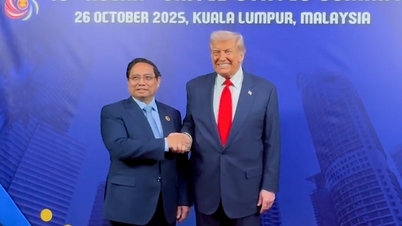

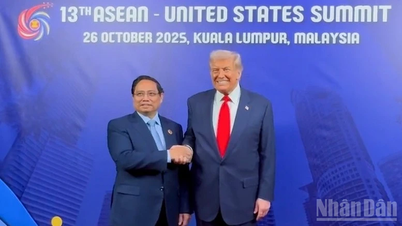
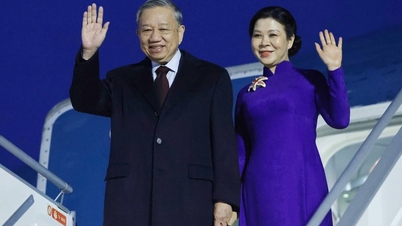
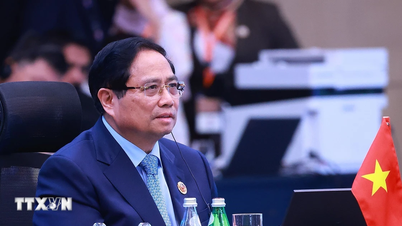


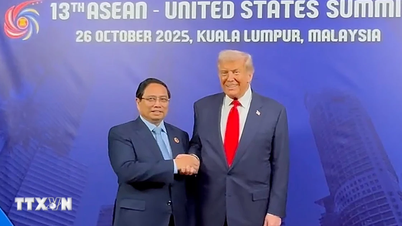




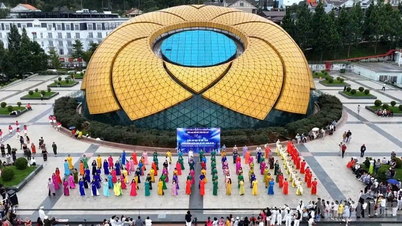

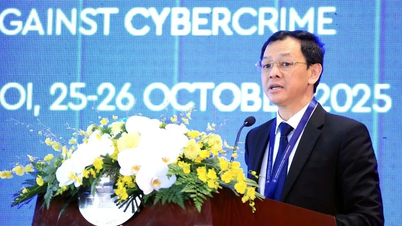
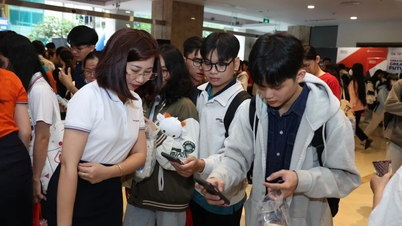
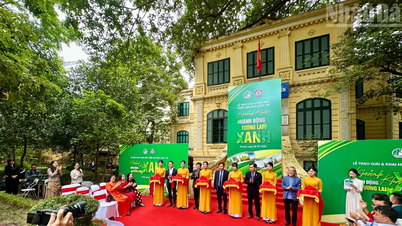
![[Photo] Nhan Dan Newspaper displays and solicits comments on the Draft Documents of the 14th National Party Congress](https://vphoto.vietnam.vn/thumb/402x226/vietnam/resource/IMAGE/2025/10/26/1761470328996_ndo_br_bao-long-171-8916-jpg.webp)

![[Photo] Prime Minister Pham Minh Chinh attends the opening of the 47th ASEAN Summit](https://vphoto.vietnam.vn/thumb/1200x675/vietnam/resource/IMAGE/2025/10/26/1761452925332_c2a-jpg.webp)





































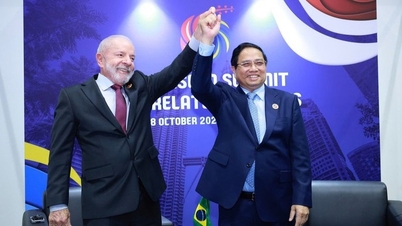
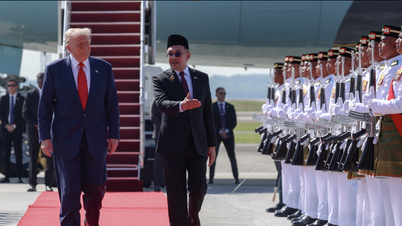

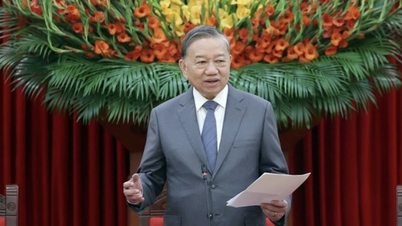

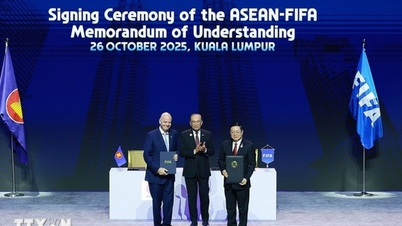

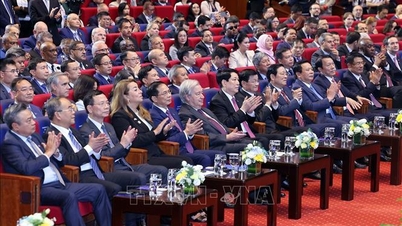

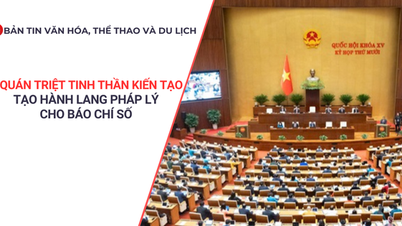
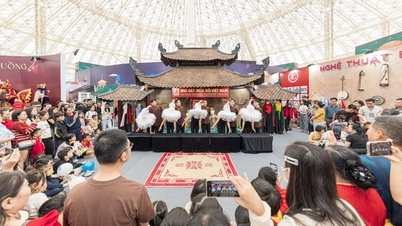
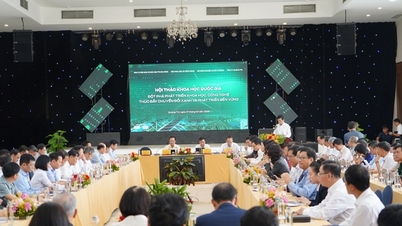

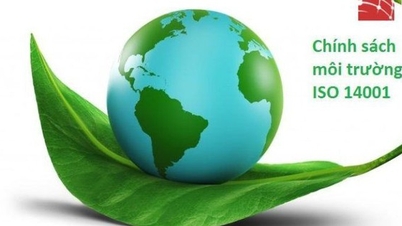
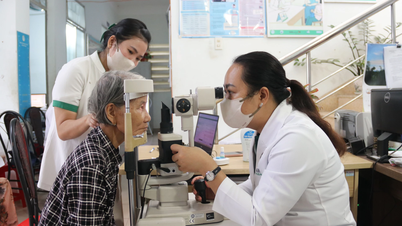


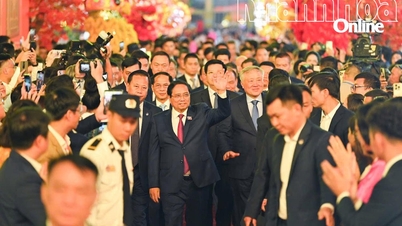
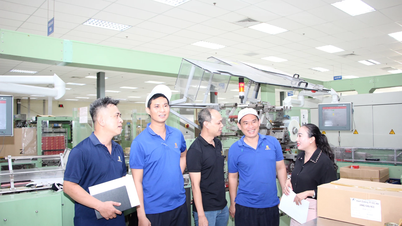
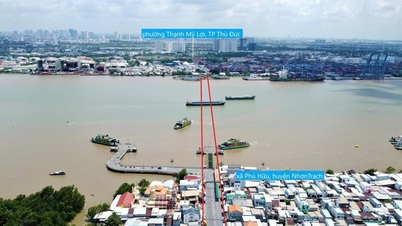

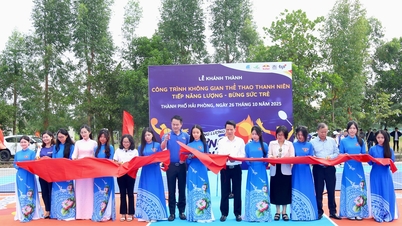














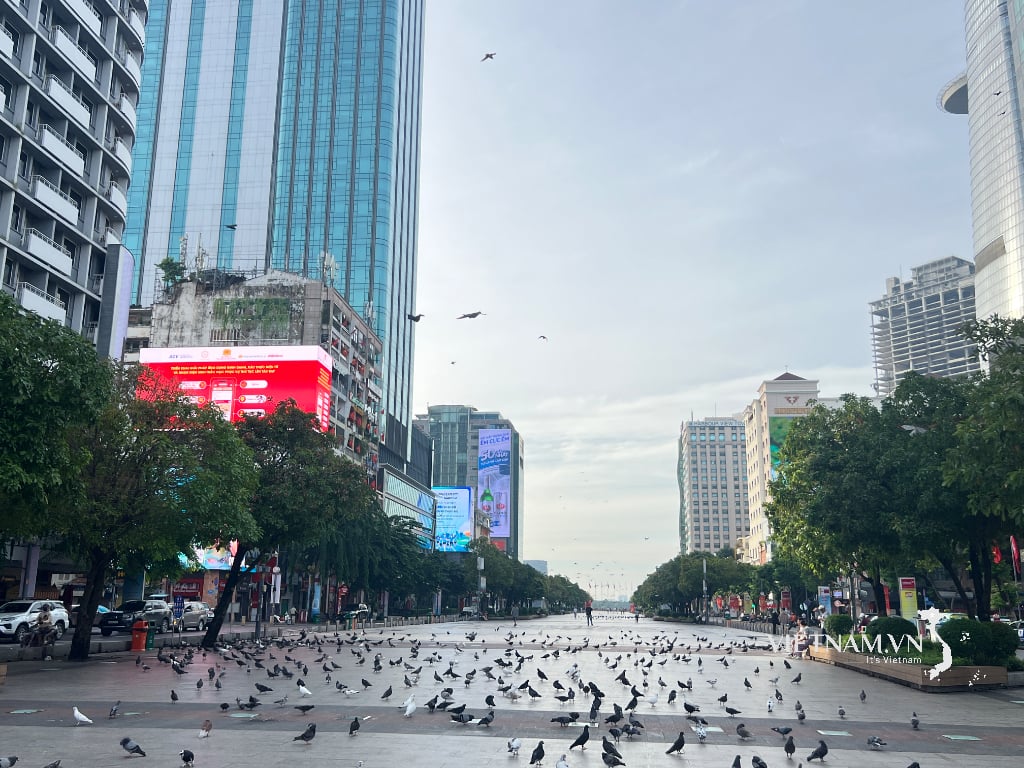


Comment (0)